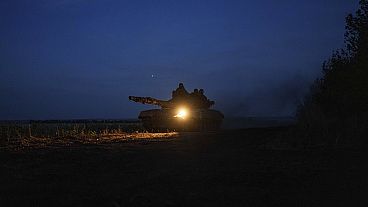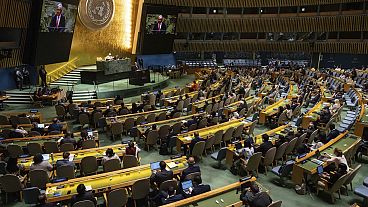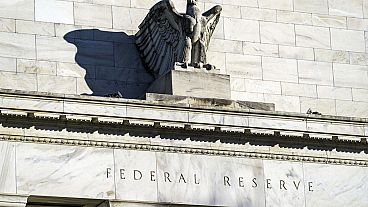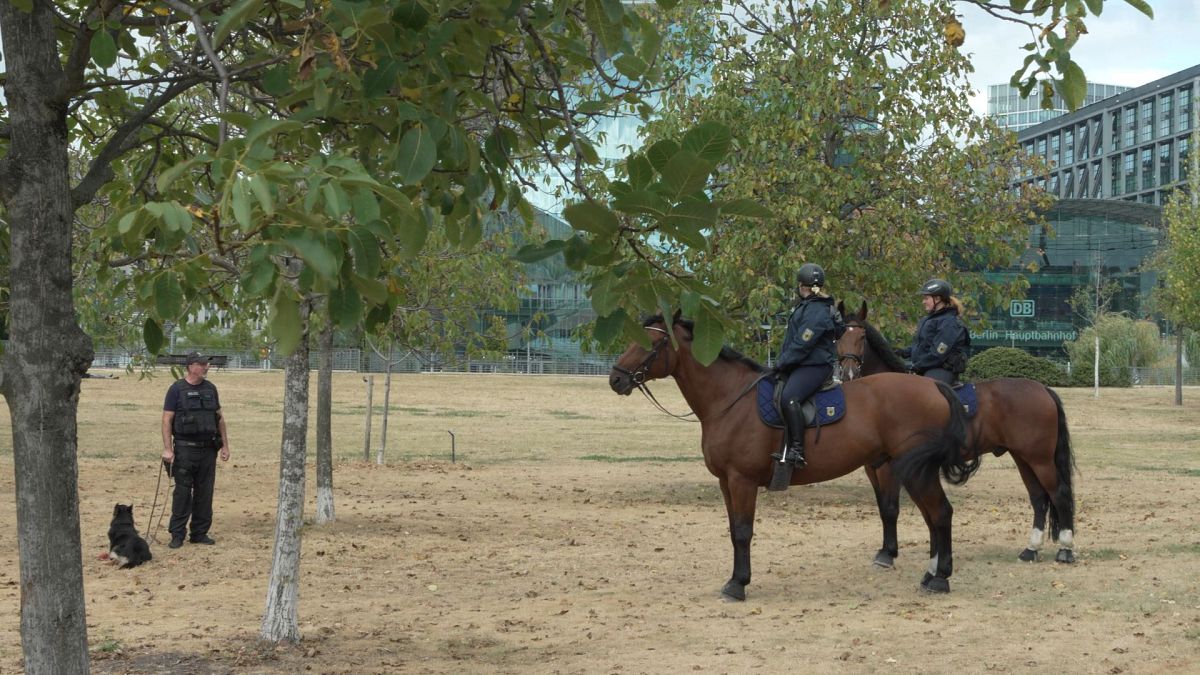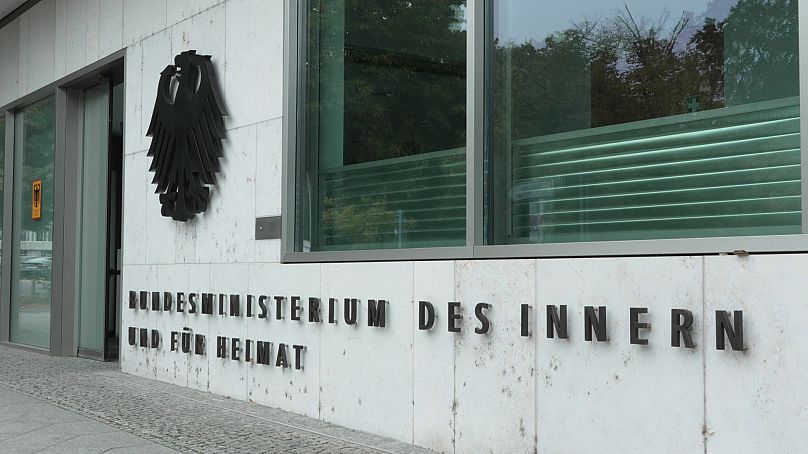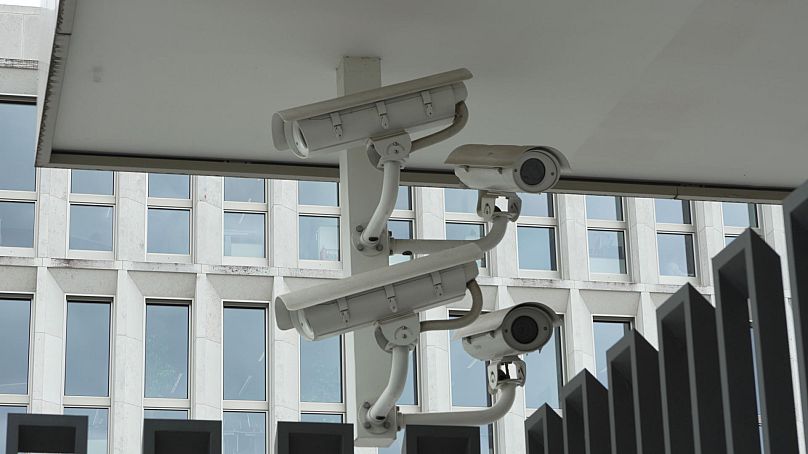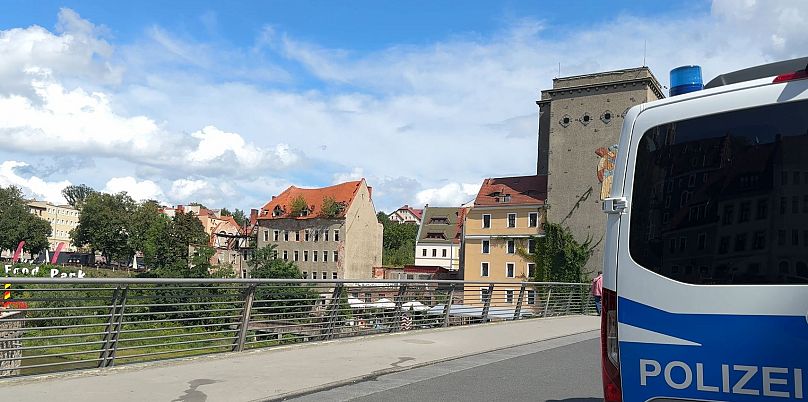The German government ordered spot passport controls at all its land borders from Monday morning, going against the EU's free movement principle.
On Monday morning, German border police were ready to start passport checks at all its land borders.
Queues at the crossings, particularly in the north and west of Germany, were expected ahead of time, and transport companies and border commuters prepared for long waiting times where there were none.
But many are still puzzled: why is Germany reintroducing border checks in 2024, after so many years of free movement — one of the EU's main pillars?
"The German government wants to show that they are doing something, and with the upcoming elections and the past elections, this is very important political signalling, of course, and it signals that we take back control of our borders," migration expert at the German Council on Foreign Relations Svenja Niederfranke told Euronews.
A series of deadly knife attacks by migrants in Germany over the past few months has sparked a public backlash and is widely thought to have contributed to big gains by anti-migrant far-right and far-left parties in two recent east German state elections.
With the third state of Brandenburg heading to polls in just under a week, recent surveys show that security is at the top of voters' agenda. The German federal election is also scheduled for next year.
Last week, Interior Minister Nancy Faeser ordered the same passport checks already in place at the Austrian, Polish, Swiss and Czech borders to be extended to Germany's borders in the west and the north, at the land crossing with France, Denmark, Luxembourg, the Netherlands and Belgium.
Are these checks likely to be effective?
"Research has shown usually with these border checks, it's usually not the big fish, it's the smaller fish that will get caught. And not every single smuggler will get caught either, because obviously they know where the border checks are and they will find different ways to do it," Niederfranke added.
However, with the previous knife attack at the Solingen Festival of Diversity killing three people and injuring another eight, the Syrian-born suspect was earmarked for return to Bulgaria last year. Still, police did not find him at his shelter when they went to deport him.
Niederfranke warned that these checks have plenty of adverse effects, especially since the EU in the Schengen zone enjoys freedom of movement within its external borders.
Transport businesses, including freight companies, and people who live in one country and commute over the border will likely be the most impacted by long queues at the border.
"People have to go back and forth for work or have to transport goods. Of course that's severely annoying to to be then stuck in the border control every single day."
She also says that legal scholars are examining whether it's possible to turn asylum seekers back at the German border and whether it's legal under EU law.
The cost and the amount of staff needed to be deployed at the German border will be considerable, Niederfranke also said.
She pointed at the federal police officers who will be relocated, despite staff shortages within the police. A police union demanded 5,000 more postings to be created for the task.
"The cost is, of course, very costly to put in the infrastructure to deploy these police officers."
Will there be a political price to pay?
Poland, Greece, and Austria strongly criticised the German government's decision to introduce these checks, which could destabilise the fabric of the EU.
Niederfranke said that although Austria was very vocal in blasting these increased checks, there have been border controls between the two countries for years. Part of Vienna's condemnation may be linked to the fact that elections are taking place in Austria in September.
On the other hand, Hungary's leader, Viktor Orban, welcomed the decision to extend these controls and said that he felt "like (German Chancellor Olaf) Scholz is now agreeing to his policy, which I don't believe the German government necessarily wants."
Meanwhile, Niederfranke added that EU officials couldn't be too pleased about the controls.
"With regards to the discussions on the new pact, the reform of the European asylum system, Germany was also more of a progressive voice and now it's turning slightly back on that," she said.
"So it is not really a clear course by the German government and that frustrates a lot of European partners."
Could the EU block these controls and take Germany to court?
"The Commission is always not happy when a member state introduces temporary border controls because that is against the idea of the European Union and against the idea of the Schengen Zone," Niederfranke said.
The border controls have been introduced as a "last resort" against terrorism, rather than migration, so it is possible the EU could see it as unlawful and take Germany to court.
"There are very specific rules of when a member state can introduce temporary border controls," she said. "And now it's easier to argue for introducing border controls. And it's also possible to have them in place for longer."
"But you still, as a member state, we need to argue that there's a serious threat to public order or security. So that's the basis on which you have to argue to introduce these border checks."
According to Niederfranke, it is unlikely the Commission would take Germany to court, looking at previous examples of when member states have introduced internal border controls.
"So even if the Commission believes this is unlawful, it has to be seen whether they will actually take Germany to court. And with a Commission that also turned slightly to the right with the last parliamentary election at EU level, I would say it's not very likely that they will take this step,."
If the EU does decide to take Germany to court, we could expect them to announce it over the next couple of months.
However with the number of asylum applications decreasing 20% compared to last year, it could be hard to argue that Germany needed to introduce checks as a last resort.
How does the asylum process work?
One of most common misconceptions in the media is the process of how the asylum procedure works according to the Dublin rules.
Niederfranke explained that asylum seekers may travel through multiple EU states before they make a claim for asylum, either in an EU state or elsewhere, such as the UK.
They are then asked a series of questions, such as if the person is an unaccompanied minor, if they have close family members in another member state, or if a spouse has applied for asylum in another member state. If so that member state would also be responsible for the spouse. And if a visa has been granted in the past by another member state, then that member state would also be responsible.
If none of those answers apply, then whichever country the person was first registered in, with finger prints, is the one that is responsible for their claim.
"Sometimes people are not registered in Italy or in Greece and then they reach, for example, Austria," where they have no family members in other states and have never received a visa from a member state before, Niederfranke added.
"So the Dublin system is a little bit more complicated, but it's still true that it's really the countries who are on the external borders, that are responsible for most of the asylum claims in the European Union," she said.
This year the asylum system in the EU was reformed, which now means that member states who take fewer asylum seekers, "need to contribute in a different way. And how they contribute, they can decide, they can either take in, resettle, relocate people from Italy" for example.
The reform is the New Pact on Migration and Asylum, which is an all-encompassing overhaul that seeks to ensure all countries, regardless of location, shoulder their fair share.
Its main point is to give governments three options to manage asylum seekers: relocate a certain number, pay €20,000 for each one they reject, or finance operational support.

